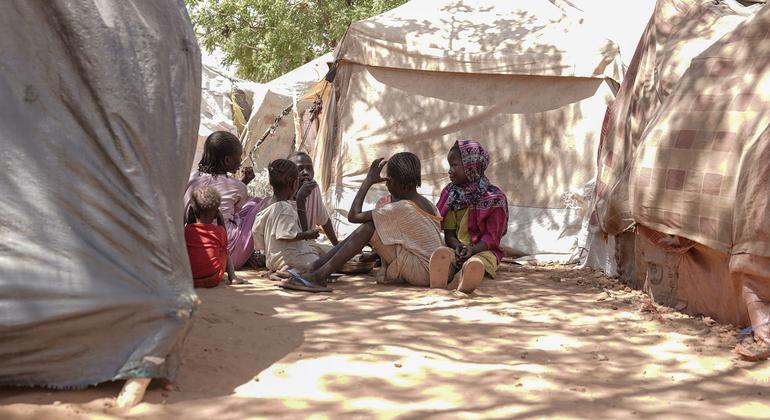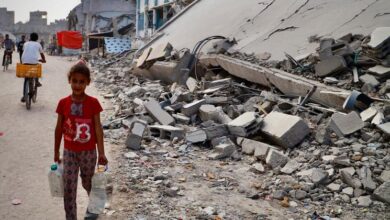Sudan: Situation worsens in El Fasher, health system collapses nationwide


United Nations spokesman Stéphane Dujarric told journalists in New York that the fighting had forced thousands of people to flee since May 10 and caused hundreds of civilian casualties.
“Unfortunately, at El Fryer South Hospital – the only hospital still operating in that state – there is only 10 days of supplies left, with an urgent need to replenish hospital supplies,” he said. .
Aid deliveries are blocked
The Sudanese army and the paramilitary Rapid Support Forces (RSF) have been fighting since April 2023.
The conflict has caused a humanitarian crisis, with about 18 million people across the country going hungry and 5 million on the brink of famine.
Mr. Dujarric said more than a dozen trucks carrying aid to more than 121,000 people have tried to reach El Fryer over the past month but were hindered because of the security situation.
Remove access restrictions
Turning to the wider Darfur region, he said that despite insecurity and severe access restrictions, a truck from the United Nations World Food Program (WFP) was able to enter North Darfur from Chad on Thursday.
The truck carried 1,200 tons of food and nutrition for about 117,000 people.
“It is vital that these trucks are allowed to continue safely and directly to their destinations in Central and Southern Darfur,” he said, stressing the need for cross-border access and cross the border.
The health system collapsed
World Health Organization (WHO) reports that the health system in Sudan is collapsing, especially in hard-to-reach areas, with facilities destroyed, looted or struggling with staff shortages.
Spokesman Christian Lindmeier said only about 30% of medical facilities were operating “and even at minimal levels” while medical supplies could only meet about a quarter of demand.
Living at risk
He said while speaking in Geneva that the WHO warehouse in Al Gezirah state had been inaccessible since December last year.
“Some states, such as Darfur, have not received medical supplies over the past year,” he added.
“People with diabetes, hypertension, cancer or kidney failure can experience complications or die because they do not receive treatment.”
The disease spreads
Meanwhile, the epidemic is on the rise. There have been more than 1.3 million cases of malaria, 11,000 cases of cholera, more than 4,600 cases of measles and about 8,500 cases of dengue fever.
Furthermore, outbreaks of malaria, measles, dengue fever and hepatitis E are also spreading in Chad.
Support and supply
To date, WHO has reached nearly 2.5 million people through direct support of emergency supplies and services.
About 50,000 people in Sudan received care at mobile clinics, while about 433,000 Sudanese refugees were treated at mobile clinics in eastern Chad.
Medical supplies have been delivered through cross-border operations from Chad and South Sudan, including emergency and trauma supplies, antibiotics and rapid dengue tests.
“Over the past few months, the efforts of WHO and partners have helped reduce the number of cases of cholera, dengue fever and malaria,” said Mr. Lindmeier.
About 4.5 million people have been vaccinated against oral cholera in six high-risk states, and groups have provided supplies to treat 115,000 children with severe acute malnutrition with complications. medical certificate.




